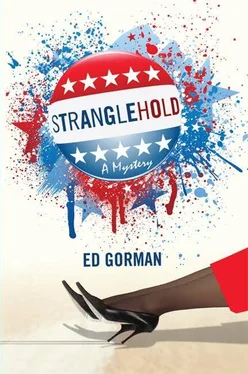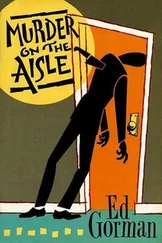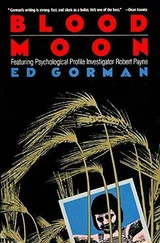I crossed the parquet floor to the front desk — the solemn air filled with Debussy on the sound system — where a young black woman sat reading a book. She smiled when she looked up. She was quite pretty, winsome, in her crisp white blouse. There was a hint of mischief in her eyes as she saw me trying to read the title on the spine of her paperback. “ Sister Carrie, ” she said. “Theodore Dreiser.”
“One of my favorite novels.”
“Really?”
“Sure. Mandatory reading for people my age who grew up in Chicago.” Sister Carrie was about a country girl who comes to Chicago at the turn of the last century and uses her looks and cunning to become a creature of high society. It is a brilliant, bitter novel.
“God, the story’s fascinating, and the way Chicago was back then...” She had a wonderful smile. “My English professor said it was banned in places when it first came out.”
“The publisher said he was sorry it was ever brought out.”
She had a sweet smile and a smart laugh. “It always amazes me what was so scandalous back then. She’d be on a reality show today.” She put her slender hand forth. “I’m Keisha, by the way. I work here after my college classes are over, answer the phone and greet people and do homework when nothing’s going on.”
“Dev Conrad. Is David Manning in, do you know?”
“No. They’ve been trying to find him. When I come in I always check upstairs with Doris. She’s very upset. Scared, I think. Nobody’s heard from him all day.”
“Doris is in then?”
“Yes. Would you like to see her?”
“Please.”
Nobody’s heard from him all day, I thought as she picked up her phone and punched in a single digit. “Hi, Doris, it’s Keisha. There’s a Mr. Conrad to see you. Is it all right if I send him up?” Pause. “Thanks, Doris.” Then: “You can go right on up. She sits at the reception desk. The other offices and the conference room are behind her. If you need to see anybody else, she can direct you.”
“Enjoy the book, Keisha.”
“Oh, I am. I just can’t help feeling sorry for Carrie sometimes — I don’t think I’m supposed to feel that, do you?”
Before I could answer, her phone rang and she started explaining to someone how a group went about setting up a tour for an entire class. She gave me a little wave.
The upstairs was all business. Wine-red carpet instead of parquet flooring, the walls covered with photographs of the late senator and various dignitaries of various eras, and a front desk wide enough to play tennis on. Doris Kelly looked almost childlike sitting at it. There was no music up here. She didn’t seem to hear me until I stood right in front of her desk. When she looked up, I saw her pull open a drawer and drop something inside quickly. She closed it with a look of shame. “I really shouldn’t be doing that, Mr. Conrad.” She knew I’d glimpsed what she’d hidden away. “I’m not a very good Catholic. I only go to Mass occasionally, but, of course, whenever something bad happens, there’s old hypocrite Doris saying her rosary.”
Tears had stained the flower-blue eyes red. The nostrils were red, too. A small box of Kleenex sat next to her phone setup. Today’s suit was black — I wondered if she believed in omens — the blouse fuchsia.
“All I got was from Keisha downstairs.”
“She’s such a sweetheart.” She plucked a tissue from the box and dabbed her eyes and nose. “We’ve been calling everywhere all day. He had a meeting at a bank and a meeting with an investment group. He spends a lot of time talking to financial people, trying to steer some of their wealthiest clients to put us on their list of charities. He’s very good at it.”
“When was the last time anybody here talked to him?”
“From what I can tell, it was Keisha. She said she worked until five forty-five and walked out with him. She said he locked up and said good night and then walked to the lot and got in his car. I’d usually have been here, but I had a four o’clock appointment with my doctor. You know how doctors’ offices are. I didn’t get in until nearly five. Oh, God, I’m just babbling, aren’t I?” Her voice was trembling.
“You’ve called Ben?”
“Yes. I didn’t tell him what was going on. I didn’t want to alarm him. Or anybody there. But I said we really needed to hear from David in case he made contact with campaign headquarters.”
“Has David ever done anything like this before?”
She looked at me as if I’d asked a dirty question. “Of course not. He’s the most responsible man I’ve ever known.”
She was talking about the man she loved, that was obvious. Whether David felt the same way, I had no idea.
“I was thinking of calling the police.”
“No!” My anger surprised me. “Sorry. I didn’t mean to snap there. But no — we’ve got enough problems with the press, and if we bring the police in on this the press will have another story to flog us with.”
“I happen to care about him very much.” She blushed.
“Look, Doris. We don’t know what’s going on. People just walk away from things sometimes. Not for long. They just take a day off. I’ve done it myself. Haven’t you?”
“I have a perfect employment record. You never know when you might need your employer to give you a recommendation.”
She was starting to irritate me. It was easy to see her now as the snitch in grade school who reported everything to the teacher.
“The police wouldn’t do anything, anyway. There’d be no reason to. Not at this point. Did you try his home?”
“Yes. I talked to the maid. She said that David came home late and went to bed. She said he had an early breakfast and left for the office. That was around seven o’clock. Nobody’s seen or talked to him since.” She touched a slender finger to the Kleenex box; there seemed to be solace in the act because she sighed. “I’m just so worried about him.”
I took out my card and placed it on her desk. “There’s my cell phone. No matter what time it is, if you learn anything, call me. Meanwhile, I’ll do some checking of my own.”
“You’ll really help me with this?”
“Of course. I just want to keep it quiet while I’m doing it.”
“I’m sorry, Mr. Conrad. This has — this has just really frightened me.”
She’d always called me Mr. Conrad, even when the group of us had had dinner in Chicago. She was just being proper, I supposed, the way her favorite book instructed her to — The Secretary’s Guide to Anal-Retentive Behavior . There was no point now in trying to get her to call me Dev.
“Remember, call me the minute you hear anything.”
“I will. Of course I will.”
I reached over and placed my hand on hers. “This’ll have a happy ending, Doris. He’ll turn up and he’ll be fine. You’ll see.”
Then I was walking to the stairs. I wondered how long it’d be before she hauled her rosary out again.
On the way to campaign headquarters I punched between three radio call-in shows. Each was dealing with the subject of Congresswoman Cooper’s son and the fact that he was being held for questioning by police. Somewhere amid the din of disapproval there was a gentler, more reasoned voice, female, making the point that a fair number of women had put illegitimate children up for adoption and that the fact that they were together again would be good for both of them. And that maybe we — the public we — should wait to see what kind of evidence the police had before judging Bobby guilty. She wasn’t on long. Who wanted to hear this kind of conciliatory crap when finding a tree for lynching was so much more fun?
At four-thirty in the afternoon the front of headquarters was empty except for volunteer staffers. Between rain, fog, and headlines the usual crew of young helpers had found other things to do after school. In the staff office in back, only Ben and Kristin remained. Kristin was laboring through a telephone conversation with a reporter who was obviously checking out various rumors. Duffy was probably floating a few of them — just as we would — but this kind of situation produces fictions through some kind of organic process that borders on magic. Then Susan wasn’t a lesbian after all? Had Susan produced other illegitimate children we didn’t know about and were any of them of the colored persuasion perhaps? Was there any possibility that Susan had been impregnated by an alien and that Bobby was a Venusian spy?
Читать дальше



![Аманда Горман - The Hill We Climb [calibre]](/books/384311/amanda-gorman-the-hill-we-climb-calibre-thumb.webp)






